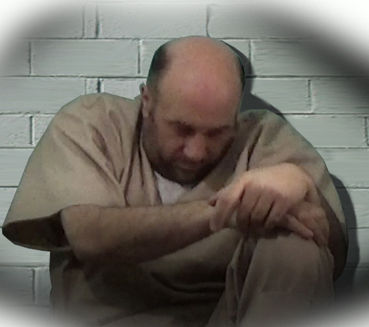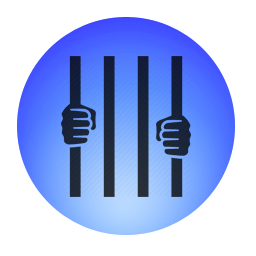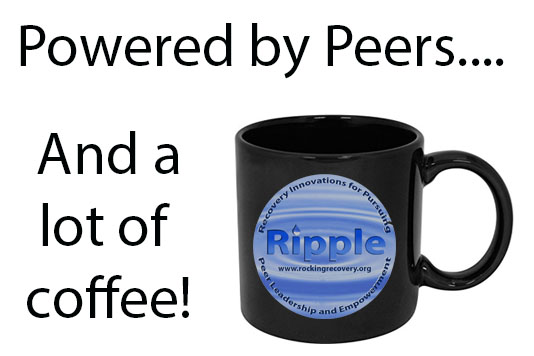
Only months ago, many people were happy to see the end of 2019, which was a rough year for a lot of us. Now it seems as we move further into 2020 last year has become a happy memory. Of course, the biggest thing in the news right now is Covid-19, more commonly known as the coronavirus. The phrase “social distancing” is now heard dozens of times a day from public officials, on social media, and on the never-ending twenty-four-seven news cycle.
The state of Connecticut has created a page on its website dedicated to providing information relating to the coronavirus. This is the primary source of information that is being shared by our legislative leaders. It can be found at:

https://portal.ct.gov/coronavirus. You will find updated numbers of confirmed cases around the state as well as a PDF document titled: “Frequently Asked Questions on the State of Connecticut’s actions related to COVID-19.”
In the days and weeks ahead, the coronavirus will likely cause a lot of disruption in our lives. One of the biggest obstacles to staying informed is the mountains of misinformation that we are bombarded with daily, not only from unreliable news sources but from the very top of our government ladder, President Trump. Several states have shut down, including Connecticut, access to services has become erratic for those who are apart of the recovery community, especially those who are battling addiction and attend regular support groups.
Connecticut has closed a lot of businesses, and only those that are considered “essential” are allowed to remain open. These include grocery stores, hardware stores, laundromats, and restaurants that deliver or that are offering curbside pickup. Another type of store that was deemed essential by the state are liquor and package stores; most of us still can’t wrap our heads around that one. Between the stress, our population is experiencing and the isolation from being in a locked-down society this is a perfect storm for relapse.

Our website, RockingRecovery.org, has gathered a collection of online support groups that you can access from anywhere, these are primarily peer to peer and can be found on platforms like Facebook. Please feel free to visit our Online Support Groups page for more information. We are also aware of groups here in Connecticut who are trying to set up phone meetings for both Alcoholics Anonymous as well as SMART Recovery. We would suggest checking their websites often for regular updates and meeting times.
It is also worth noting that in stressful times there is a surge in service requests from people living with mental illnesses such as depression, PTSD, and anxiety disorders. If you are afraid to leave you home, the state of Connecticut has set up several warm lines for those who need them. A comprehensive list of warm lines can be found on RockingRecovery.org. This list also includes the National Suicide Prevention Lifeline with numbers for both English and Spanish speaking community members.

Page 1
Isolation…
Self-quarantine, isolation, confinement, no matter what you call it, what some of you are experiencing is loneliness. It has long been established that solitary confinement and isolation in a prison environment can lead to mental health instabilities, but what if you are not in prison? What if you are living in our world at the time of a pandemic? We would like to use this global event to talk about what someone experiences in prison and why it can be extremely detrimental to a person’s mental health over a lifetime.

Right now, there are people stuck in their homes who still have access to the internet and cell phones. They have the ability to reach out and connect to friends and family. They can watch thousands of hours of video, listen to nearly any song they want, and go outside to stretch their legs. Some people can work from home. Others are taking the time to improve their living space, painting rooms, clearing clutter, or working out in their yards. People are becoming creative, working on crafting projects, and taking the time to bake or make truly home-cooked meals that were not served out of a microwave. Even while confined, there are many options to pass your time.
We would like you to imagine for a moment what it would be like being trapped in the smallest room of your home. For twenty-three hours of a day, you are in that room, no phone, no internet, no music or television. If you are hungry, you must wait until someone else is ready to feed you. If you have a headache, there is no medication available; if you can’t sleep, no one cares. It’s cold, and you have one sheet and one thin blanket. If your lucky, you have enough clothing around to roll up into a makeshift pillow. If your restless and want to walk, you can only pace back and forth in an area about 10 feet long. Ask yourself how this might influence your mental wellbeing.
One authority has already publicly expressed their opinion; the World Health Organization released a statement and said the following:

“Prisons are bad for mental health: There are factors in many prisons that have negative effects on mental health, including: overcrowding, various forms of violence, enforced solitude or conversely, lack of privacy, lack of meaningful activity, isolation from social networks, insecurity about future prospects (work, relationships, etc), and inadequate health services, especially mental health services, in prisons.
The increased risk of suicide in prisons (often related to depression) is, unfortunately, one common manifestation of the cumulative effects of these factors.
Prisons are sometimes used as dumping grounds for people with mental disorders: In some countries, people with severe mental disorders are inappropriately locked up in prisons simply because of the lack of mental health services. People with substance abuse disorders or people who, at least in part due to a mental disorder, have committed minor offences are often sent to prison rather than treated for their disorder. These disorders therefore continue to go unnoticed, undiagnosed and untreated.”
Even when we know how detrimental a prison environment can be, here in Connecticut, the court system will still send someone there who has not yet been found guilty of a crime. According to a January 31st, 2019, Connecticut Post article, the State of Connecticut Department of Corrections housed 3,401 pre-trial inmates. This was out of the reported prison population of 13,228. This means over 25% of the prison population was not yet convicted of a crime.
In April of 2016, the Connecticut Post reported that Connecticut was the third most expensive state in the nation when it came to housing prisoners at $50,262 per year or just over $137 a day. Let us go back to the pre-trial inmates for a moment, the 3,401 people behind bars with their fate still undecided. If we assume that 50% of them were being held for nonviolent crimes, it will give you 1,700 inmates rounded to the nearest whole person.
Page 2
At $137 per day, per prisoner, the state would show a savings of almost $232,968 a day… $6,989,055 a month… or what amounts to $83,868,660 a year. Ask yourself what the state could do with more than 83 million dollars. How many people could we send to college? How many could be feed or lift out of poverty? According to the article, “Shackled: The Realities of Home Imprisonment” posted in June 2018 on EqualJusticeUnderLaw.org, the cost to set up an ankle monitor ranges from $175 – $200 and the cost of monitoring ranges from $5 – $40 a day.


My first argument for using a system like this rather than imprisonment is the upfront cost savings. Since a bond is nothing more than a guarantee that a person will show up for court, daily monitoring should not be required at all. Daily tracking is primarily used for anyone out on parole, a person who is convicted of a crime. In my mind, someone who is still being processed through the court system does not need to be on a daily monitoring system. After all, we don’t actively track people who could afford bond or are released on a promise to appear. The ankle monitoring feature only needs to be activated when a defendant fails to appear for his or her hearing date.
Let’s use a batch of 100 people as an example, and use 120 days as an average confinement time of someone who can not afford bond. For this example, I will say the setup fee is $250, which is higher than what is quoted in the before mentioned article. In 120 days, the cost of ankle monitoring is $25,000. To imprison 100 people for 120 days the cost is $137 a day per person. In 120 days, the cost would be over 1.6 million dollars.
Today because of Covid-19, prisons are releasing inmates who were not convicted of violent crimes. There are many dangers inside our nation’s jails, and Connecticut is no exception. With the spread of a deadly virus, many prisons are scrambling to reduce their populations. Perhaps it is time to examine pre-trial confinement, how it discriminates against race, economic status, and how it is used as leverage in creating plea deals. People are either innocent until proven guilty or not, and innocent people should not be prisoners.

After what feels like forever, we did it!
The long road that got us here was not easy, there were setbacks, people came, and people went. For a while, the future of Ripple was very uncertain, and it almost disappeared forever…
Last year on May 1st, 2019, RockingRecovery.org launched. In that moment Recovery Innovations for Pursuing Peer Leadership and Empowerment came back with a redefined mission and a clear vision for the future. On March 31st, 2020, the paperwork and payments necessary to incorporate as a non-profit in the state of Connecticut. Hopefully, if everything goes according to plan, everything should be official to celebrate our first anniversary.
Of course, we are also very aware that the coronavirus could slow things down significantly. Getting together to celebrate is also on hold for the immediate future, but that is for a very good reason. We value the health and safety of our friends and family. Over the next months, we expect that things will take shape, and our internal structure will begin to look a lot different. Goals will be set, and as new talent joins our organization, we will start to examine what else Ripple can do for the community.
Ripple would love to have your voice as part of our team! For now and for the foreseeable future, we will remain a volunteer organization. As we progress, begin fundraising, and grant writing, we hope to secure the resources necessary to have five full time peers working with us. There is no shortage of people who need to be helped and things that need to be done.
As Ripple gains momentum, one of our long term goals is coming into view, the creation of a peer respite somewhere in the state of Connecticut. Realistically this is something that would be forecast for the year 2025. Someone once said, “If your dreams don’t scare you a little bit, then your not dreaming big enough.” Our journey into the future will have its ups and downs for sure, but we will face them together and continue to work towards our primary goal of making our community a better place for all.
Page 3
www.RockingRecovery.org

Ripple’s site, RockingRecovery.org continues to grow! We officially launched as a community resource on May 1st, 2019, and since that time, it has taken on a life of its own. The most visited section of this site is the CT RESOURCE LINKS page where we have hundreds of programs and services for people in Connecticut who need help. As of the publication of this newsletter, there are 40 categories leading to over 840 agencies and providers who offer a combined 1,200+ resources within the state. This section of the site is icon-driven, which allows you to quickly scan through the services and find the help you need.
Over the last few months, several people have told us how impressed they are with the website, people who are involved with peer education have mentioned that they use it in their classes. We are both gratified and humbled that this is proving to be useful by the community, but we have a confession to make. The work and ideas being put into this website are not ours alone. Much of the creative influence of this site has come from people just like you.
Without the stories our peers have shared with over the last year, the site would be a lot more sparse. We not only understand the power of sharing our stories; we know the power of listening to yours. As a community, it is easy to see, the more we share, the more we grow.
One of our philosophies is you only need three things to help someone, hope, time, and compassion. It is our goal to show others out there that Connecticut offers a vast network of organizations, services, and programs for people living with mental illness and addiction… That they are not alone, and that people are willing to support them in their recovery.
Ripple’s mission is simple, as people with lived experience in the mental health and substance abuse services system, we seek to empower our peers. To use our voices to educate,

inform, and inspire new leaders in our community. We will bring new and innovative ideas to the recovery processes for the benefit of all. RockingRecovery.org is one of the tools that will help is be successful in that goal.
This website is made up of over 90 pages and has taken over 435 hours of work to get to where we are now. Currently, we are aware of more than a dozen agencies using our site to better serve their clients.
RockingRecovery.org has become a useful tool to help their clients get connected to outside services that improve the quality of their lives. We hope this will be picked up by more providers in the area and it can bring more help to those who need it.
A note from the webmaster:
RockingRecovery.org is a lot like a person’s recovery journey; it does not happen all at once, and at some points, it won’t go exactly as planned. We will hit obstacles and have setbacks, but with enough time, we will see our way clear and be able to move forward. It is our goal to create the most useful site possible for our community and peers. We will be continuously adding the CT Resource Links section and expect that it, just like recovery itself, will always be a work in progress.

Page 4



